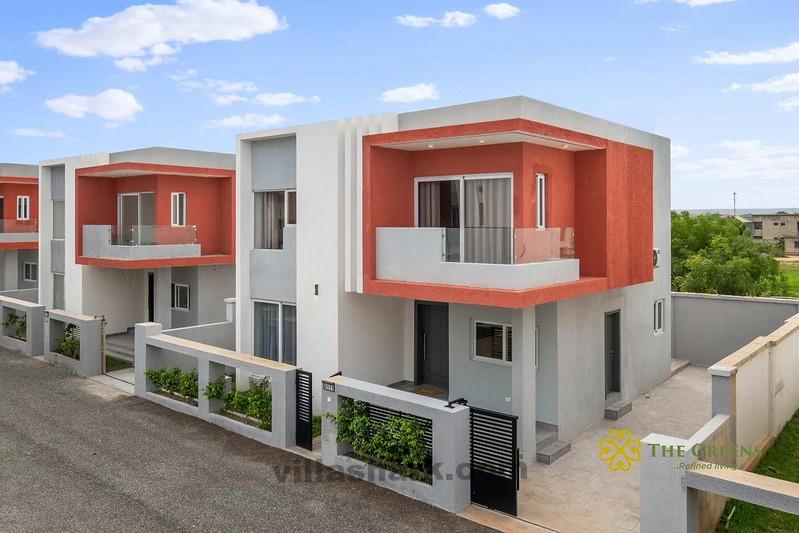When it pertains to industrial leasing, the kind of lease you pick can considerably affect your service's monetary stability and functional flexibility. Two prominent lease structures, Gross Lease vs Net Lease, have various implications for tenants. In this post, we'll dive into the information of these lease types to assist you make an educated choice that lines up with your service objectives.

To begin, let's clarify the essential meanings of Gross Lease and Net Lease:
Gross Lease:
In a Gross Lease plan, you pay a repaired rent quantity to the landlord. This lease covers most, if not all, property-related expenses, such as residential or commercial property taxes, insurance coverage, and upkeep. Essentially, you have a foreseeable regular monthly cost for your usage of a commercial realty residential or commercial property.
Net Lease:
On the other hand, a Net Lease requires you to pay not only the base rent but also additional expenditures connected with the residential or commercial property. These extras may consist of residential or commercial property taxes, insurance coverage, and upkeep costs.
Depending on the lease type, you could have among the following:
Single Net Lease: renter pays residential or commercial property taxes
Double Net Lease: renter pays residential or commercial property taxes and insurance coverage
Triple Net Lease: tenant pays residential or commercial property taxes, insurance coverage, and upkeep
Breakdown of Key Differences:
Financial Responsibility
Gross rents put most of the financial problem on the landlord, while Net Leases disperse the costs in between you and the property owner. This difference directly impacts your month-to-month costs and financial danger.
Rent Structure
Gross Leases provide an uncomplicated fixed lease quantity, typically somewhat higher to accommodate consisted of expenditures. Net Leases combine a base lease with additional expenditures, possibly leading to a lower base lease.
Expense Allocation

Under a Gross Lease, the property manager deals with different costs, streamlining your monetary commitments. With Net Leases, you handle different levels of duty for property-related costs, introducing flexibility and intricacy into your financial arrangements. Additional line items like, typical area upkeep expenses, tenant utilities expenses, residential or commercial property management fees, yearly taxes and more contribute to your regular monthly additional financial resources.
Predictability vs. Variable Costs
Gross Leases provide you with foreseeable costs given that your costs stay consistent. Net Leases, however, introduce variability due to the rising and falling nature of the building's operating costs like residential or commercial property taxes, typical location energies, and maintenance costs.

Advantages and disadvantages of Each Lease Type:
Gross Lease Pros
- Predictable regular monthly costs.
- Lower financial risk due to fixed expenses.
- Less participation in residential or commercial property management.
Gross Lease Cons
- Potentially greater base rent compared to Net Leases.
- Limited control over property-related costs.
Net Lease Pros
- Potential for a lower base lease.
- More control over space and residential or commercial property.
- Flexibility in handling expenses.
Net Lease Cons
- Variable expenses can be challenging to spending plan for.
- Increased financial risk due to changing costs.
Before performing a legal agreement like your lease, it is necessary to consider the primary benefits of Gross rents vs Net Leases and how unanticipated costs main impact your companies bottom line. A provided business areas' associated operating expense can vary significantly and affect your company's financial efficiency.
Considerations:
1. Define Your Budget and Risk Tolerance
Understand your monetary limitations and how much threat you're comfy taking on. This will help you choose a lease type that lines up with your company's financial health.
2. Scrutinize Lease Terms
Thoroughly review lease arrangements, especially the details of expense obligations. This will avoid any surprises down the line.
3. Long-Term Financial Impact
Consider how the lease type will affect your finances and service operations over time. Think about your capability to adapt to prospective expense fluctuations.
Real-World Scenarios
Let's take a look at a couple of examples to show the impact of lease structures on renters:
Local Boutique under a Gross Lease
Imagine a captivating regional shop nestled in a dynamic shopping district. Opting for a Gross Lease, the store pays a set base rent that covers not simply the area however also property-related expenses like maintenance and insurance. This option allows the owner to focus on curating special products and first-class customer service, unburdened by residential or commercial property upkeep and month-to-month lease audits of the residential or commercial property's financials. With financial predictability, the shop thrives as a regional gem, with confidence serving the neighborhood's requirements while the Gross Lease offers a sturdy foundation for their success.
Consulting Firm under a Single Net Lease
A thriving consulting company choose a Single Net Lease for their workplace. In this circumstance, they are responsible for paying the residential or commercial property taxes in addition to the base rent. This plan permits them to have more control over their area and makes sure that they contribute straight to the residential or commercial property's tax commitments. While the base rent may be a little lower than a Gross Lease, the firm appreciates the transparency and specific control over a considerable aspect of residential or commercial property costs. They budget for the residential or commercial property taxes along with their lease, providing a well balanced and manageable monetary outlook.
Healthcare Clinic under a Double Net Lease
A busy healthcare clinic selects a Double Net Lease for their facility. In this case, they are responsible for both residential or commercial property taxes and insurance, in addition to the base rent. This arrangement suits their requirements as they desire to have a say in the residential or commercial property's insurance protection and ensure its alignment with the center's requirements. By taking part in insurance decisions, they can possibly secure customized protection that provides the essential defense for their customized equipment and services. While the base lease is adjusted to account for these additional expenses, the center values the capability to fine-tune their property-related costs to suit their specific needs.
Creative Studio under a Triple Net Lease:
In the heart of a dynamic arts district, an imaginative studio buzzes with development in a multi-tenant building. Embracing a Triple Net Lease, the studio takes on residential or commercial property taxes, insurance, and common area maintenance along with base lease. Given their co-tenants are also creatives, there is a shared, community oriented element all pitching in on the areas operating expenditures. This option empowers them to customize expenditures and form their environment for artistic collaboration. Everyone is conscious of energy consumption, shared janitorial services, and capital expenses. With the Triple Net Lease's versatility, the studio continues to draw in varied creators, providing a space where creativity understands no bounds.
Gross vs Net Lease
Understanding the differences between Gross Lease and Net Lease is critical for occupants. Your choice will directly impact your financial stability and operational flexibility. By thoroughly considering these lease types and aligning them with your business objectives, you can lay the structure for a successful and thriving service journey.

Before making any lease-related choices, it's smart to consult legal and monetary experts. Their expertise will direct you through the intricacies of lease structures, guaranteeing that you make options that benefit your service and lead to an unified tenant-landlord relationship.

Lease Accounting Resources
Take a look at our resource hub. We have the templates, spreadsheets, and calculators to assist you handle whole lease lifecycle.






